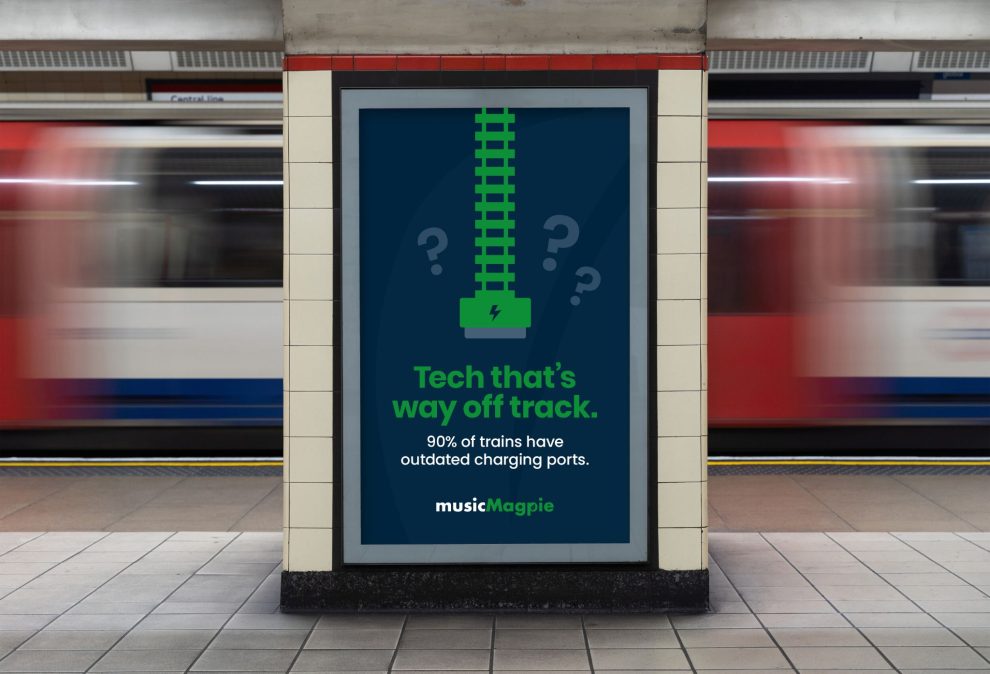A SHOCKING new study conducted by refurbished tech and media experts musicMagpie has revealed that the UK public transport network is ill-equipped to handle the move to USB-C charging cables, which are about to dominate the tech world.
Following new legislation, European countries will soon be able to use a single charging lead for all standard electrical devices—a USB-C–by the end of 2024. While the specific change is for the device port, and the UK does not have to comply, industry giants such as Apple, Samsung, and Google Pixel have already implemented a USB-C connection via the port as standard (as seen in all their latest available models), leaving USB-C to USB-C chargers set to dominate society as people upgrade their current devices.
By analysing the charging facilities across the UK train and coach network, musicMagpie has revealed that Wales is leading the charge in keeping their passengers connected.
musicMagpie’s study highlights Wales as the best-prepared region in the UK for the USB-C transition. By ensuring nearly all train services in Wales have three-pin plug sockets, Welsh train companies are setting a high standard for passenger convenience and connectivity. In stark contrast, only 28% of trains passing through England offer similar plug socket access.
The study revealed that, overall, over half (57%) of train lines in the UK can’t guarantee a three-pin plug socket across their train services, meaning anyone with a USB-C charger won’t be able to charge their phone. Instead, 90% have invested in USB ports that are soon to be outdated.


This is particularly alarming as only two models, the HUAWEI Mate X3 and HUAWEI Mate 50 Pro, offer a USB-C to USB-A cable as standard from the top four phone manufacturers in the UK: Apple, Samsung, Google Pixel, and Huawei[1]. This means anyone who buys a Samsung, Google Pixel or iPhone SE up to an iPhone 16 after its release in September 2024 will face charging difficulties when travelling if public transport doesn’t invest in upgrading their services.
The study also examined charging facilities across the different English regions. The data also reveals that the Midlands were most likely to be powerless, with only 24% offering plug sockets. This was followed by the South of England, where 35% of services can guarantee a three-pin plug socket. Surprisingly, travellers stopping throughout North England are the least likely to be left powerless on their journey, with 39% of train services able to guarantee a three-pin plug socket. However, this is the best of a bad situation, as less than 50% is far from admirable. Trainlines in the North have invested in the most outdated tech in England (96%). Arguably, investing in three-pin plug sockets as Wales have may have been a better use of their budget.
If you’re travelling to and around Rutland, Bedfordshire, or Leicestershire, you should invest in a good power pack as trains running through these areas are the least likely to guarantee a three-pin plug socket or even a USB port. Also, despite being the capital of England and full of many tourists and commuters, people looking to travel around London are the sixth most likely to need to invest in a battery pack.
Having analysed the three leading UK coach services, National Express, Megabus, and FlixBus, musicMagpie concluded that none of these coaches currently have USB-C ports as standard. All three primarily offer USB charging ports over three-pin plug sockets, meaning that any hopeful USB-C user won’t even have the opportunity to charge their phone in the future.
You can find the full study on the musicMagpie site here.













